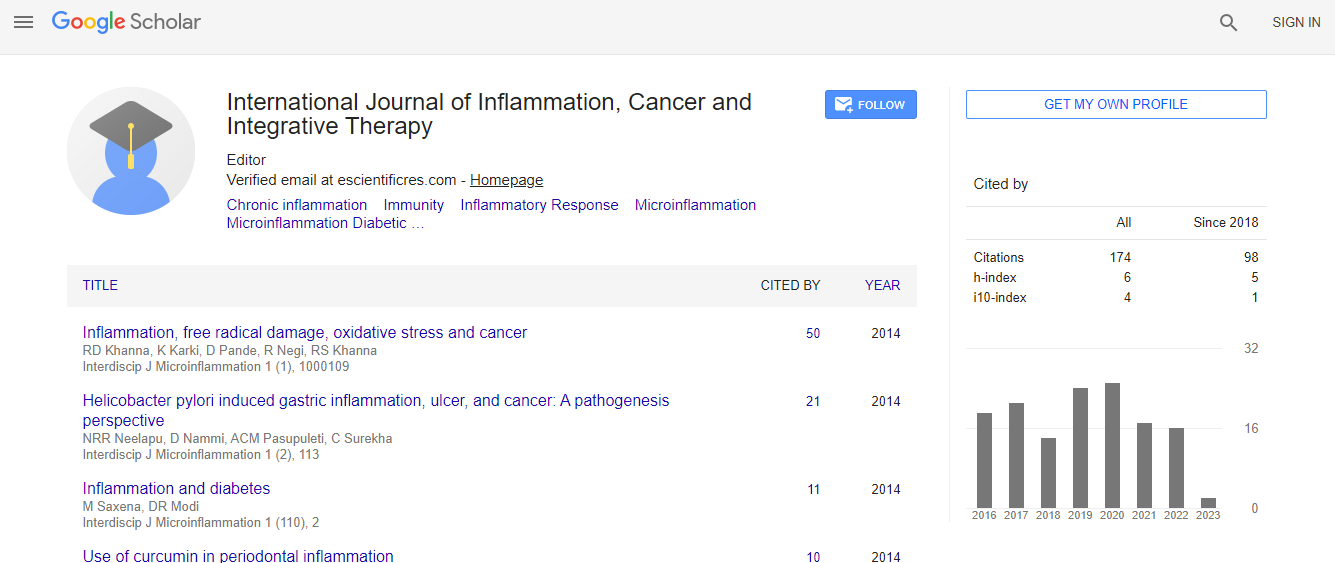Mini Review
Helicobacter Pylori Induced Gastric Inflammation, Ulcer, and Cancer: A Pathogenesis Perspective
Neelapu NRR*, Nammi D, Pasupuleti ACM and Surekha CDepartment of Biochemistry and Bioinformatics, School of Life Sciences, GITAM Institute of Science, GITAM University, Rushikonda Campus, Visakhapatnam, Andhra Pradesh, India
- *Corresponding Author:
- Nageswara Rao Reddy Neelapu
Department of Biochemistry and Bioinformatics
School of Life Sciences, GITAM Institute of Science
GITAM University, Rushikonda Campus
Visakhapatnam, Andhra Pradesh, India
Phone: +91-891-2840464
Fax: +91-891-2790032
E-mail: nrneelapu@gmail.com; nrneelapu@gitam.edu
Received date: September 15, 2014; Accepted date: October 1, 2014; Published date: October 8, 2014
Citation: Neelapu NRR, Nammi D, Pasupuleti ACM, Surekha C (2014) Helicobacter Pylori Induced Gastric Inflammation, Ulcer, and Cancer: A Pathogenesis Perspective. Microinflammation 1:113. doi: 10.4172/2381-8727.1000113
Copyright: © 2014 Neelapu NRR, et al. This is an open-access article distributed under the terms of the Creative Commons Attribution License, which permits unrestricted use, distribution, and reproduction in any medium, provided the original author and source are credited.
Abstract
Helicobacter pylori infection induces gastric inflammation, ulcer, and cancer. H. pylori infection is coordinated in a cascade manner that helps it to colonize in the host. Colonization of bacterium starts by adapting itself to the harsh acidic environment in the stomach. H. pylori has the necessary machinery to neutralise the pH of its surroundings. It also has the ability to sense the pH of its surroundings and move towards the less acidic region. H. pylori’s next hurdle is gastric mucosal barrier in the stomach and it has the capability to overcome this gastric mucosal barrier. Once the gastric mucosal barrier is weakened, pathogen uses different adhesion molecules to adhere to the epithelial lining of the stomach. Pathogen then establishes interaction with the host using several toxins that indirectly leads to development of inflammation or gastritis. Prolonged inflammation damages epithelial cells leading to ulcers in the stomach. Genetic changes in the host cell due to H. pylori infection leads to development of gastric cancer. The present paper reviews in detail H. pylori induced gastritis, gastric ulcers and gastric cancer.

 Spanish
Spanish  Chinese
Chinese  Russian
Russian  German
German  French
French  Japanese
Japanese  Portuguese
Portuguese  Hindi
Hindi 
